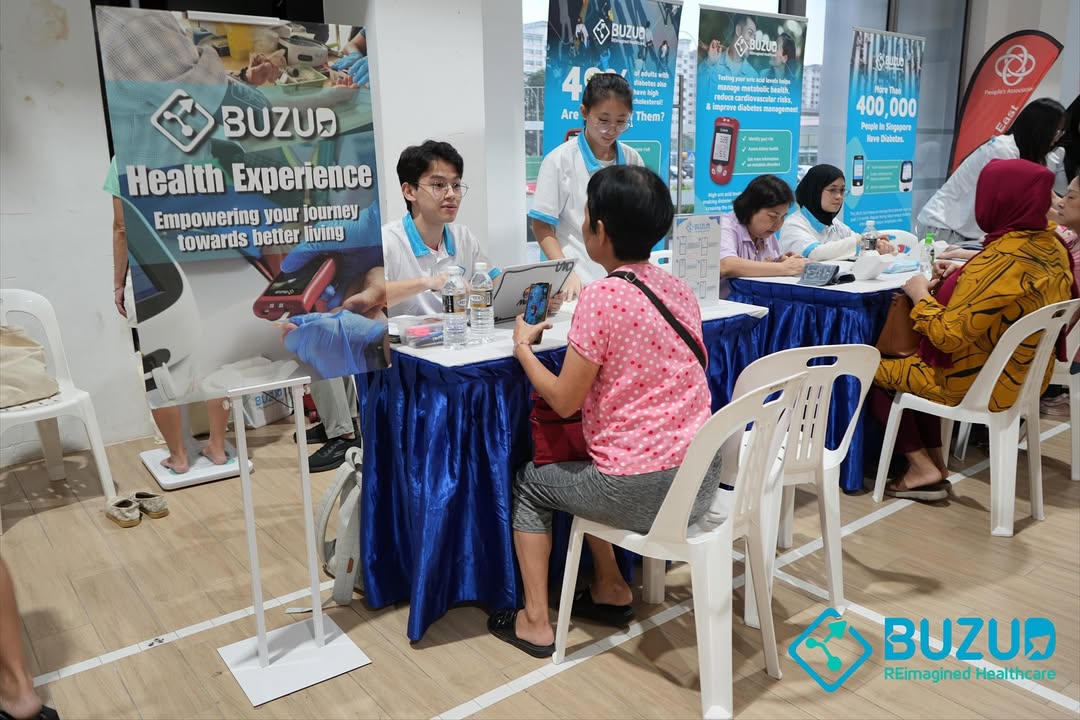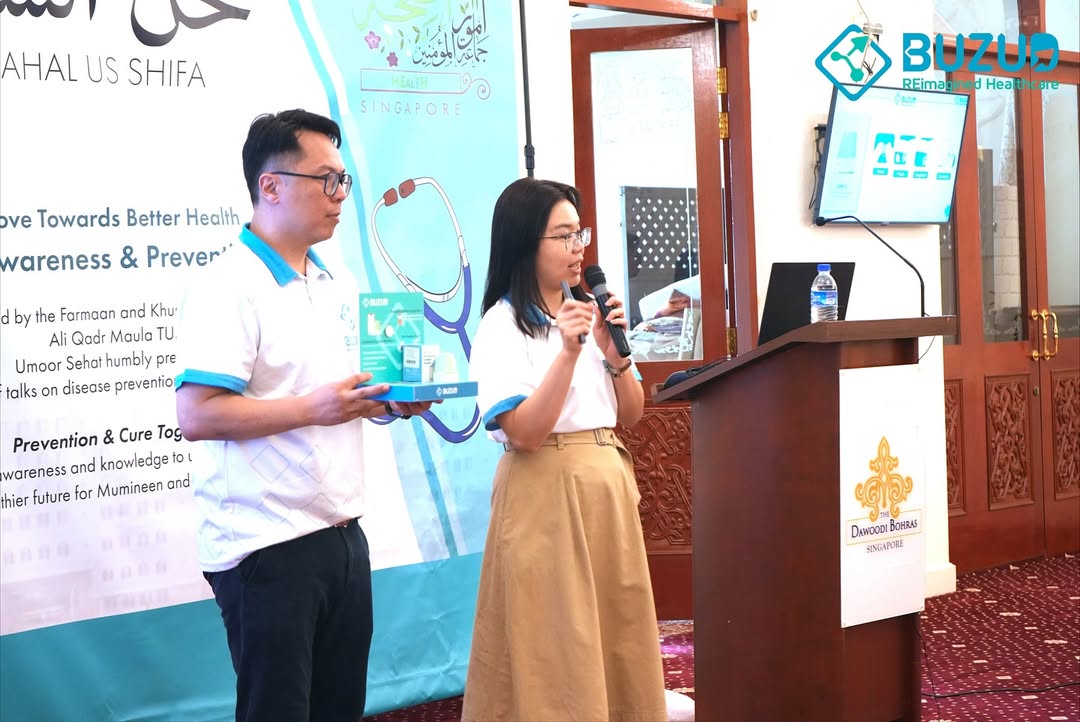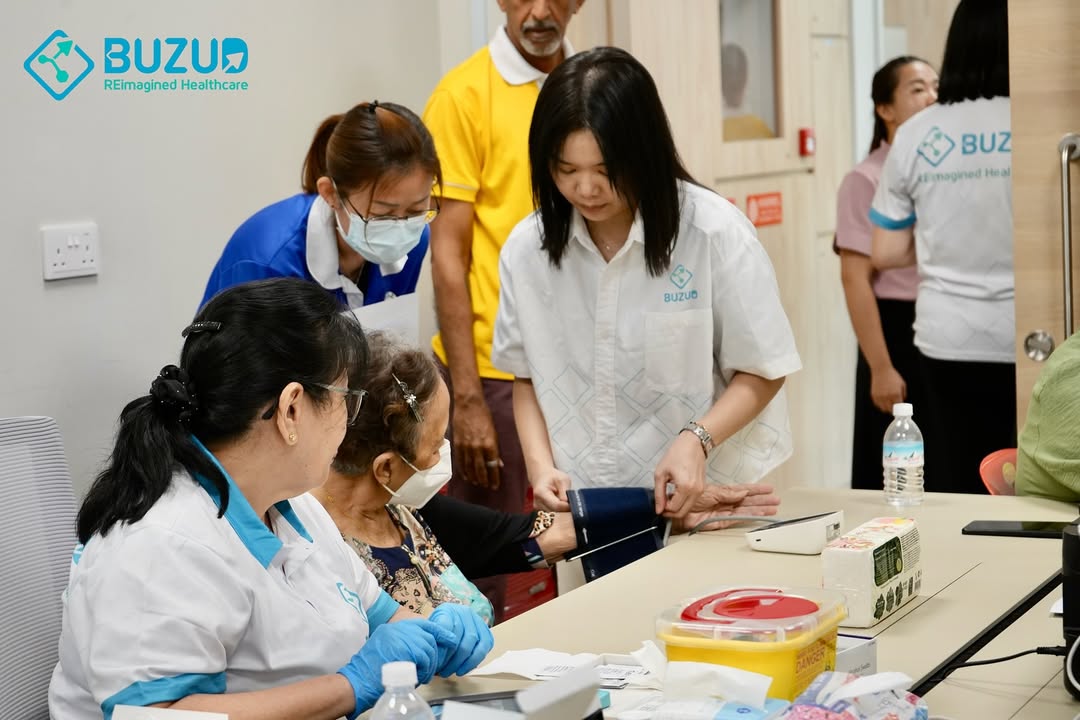BUZUD × International Medical University (IMU): Strengthening Diabetes Care and Innovation in Malaysia
What a truly special day it was. At the International Medical University (IMU) in Malaysia, we did much more than sign an agreement — we celebrated a warm, meaningful milestone that feels like a big step forward in BUZUD’s story across Southeast Asia. We took a moment to reflect on the first anniversary of BUZUD’s Continuous Glucose Monitoring (CGM) system, and, even more importantly, we formalised a strategic Memorandum of Understanding...
BUZUD Bringing Diabetes Care Closer to the Community at NHG World Diabetes Day 2025
BUZUD was honoured to take part in NHG World Diabetes Day at Bukit Canberra Community Plaza, joining residents, healthcare teams and partners for a meaningful day of awareness, screening and conversation around diabetes. Set in the heart of the community, the event was all about empowering people to take charge of their health – and reminding everyone that with early detection, daily monitoring and the right support, living well with or...
Empowering Nurses Through Innovation: BUZUD at the NHG Health Nursing Innovation Festival 2025
BUZUD was honoured to be part of the NHG Health Nursing Innovation Festival 2025 at the Centre for Healthcare Innovation (CHI) — a gathering dedicated to one central question: how can innovation empower nurses and transform the way care is delivered? The festival brought together nurses, healthcare leaders and industry partners to explore new ideas, share projects from the ground, and reimagine how technology and care can work hand in hand. Innovation...
Health Awareness Day at Tampines East CC: Small Checks, Big Impact
Over at Tampines East Community Club, BUZUD spent a meaningful day on the ground for Health Awareness Day, reminding residents of a simple but powerful truth: health starts with a check. In the bustle of everyday life, it is easy to put off health screenings or ignore small warning signs. This event was all about slowing down for a moment, taking stock, and helping people see how small steps today...
Community Health Outreach at Masjid Burhani: Supporting Better Metabolic Health Together
BUZUD was honoured to be part of a Community Health Outreach at Masjid Burhani, where faith, fellowship and health came together in a truly meaningful way. It was a fulfilling day for our team as we joined hands with medical professionals to raise awareness about metabolic health and support the community in taking small but important steps towards healthier living. Bringing metabolic health awareness into the community Metabolic conditions such as diabetes,...
Working Together Towards Better Primary Care: BUZUD at SingHealth Dot PCN
Two events in one day, at the same time?! It sounds insane but Team BUZUD is practically superhuman anyway! While our colleagues and volunteers are reaching out to the public at another event, BUZUD was also part of SingHealth Dot PCN over the weekend – a gathering that brought together passionate general practitioners (GPs), primary care teams and partners committed to strengthening care in the community. In a healthcare landscape where more...
Celebrating Community and Health at Masjid Al Abdul Razak’s 60th Anniversary
Tired? Yes. But what to do, the grind is not stopping! Amid a packed calendar of healthcare events and innovation showcases, one of the most meaningful moments for Team BUZUD this season was stepping into the heart of the community to celebrate Masjid Al Abdul Razak’s 60th Anniversary. Instead of just marking the milestone with speeches and ceremonies, the mosque chose to weave in a strong focus on health and wellbeing...
BUZUD at Singapore Health & Biomedical Congress 2025: Innovating and Looking Ahead
What a busy October for BUZUD! After a short break, it's was back to the grind again for Team BUZUD. This time, BUZUD was part of the Singapore Health & Biomedical Congress (SHBC) 2025, one of the region’s key platforms for healthcare and biomedical professionals to come together, share ideas and explore the future of health. Across two packed days, the congress brought together clinicians, researchers, innovators and industry partners under...
BUZUD at NHG HEALTHIVERSE 2025: Two Days of Energy, Innovation and Impact at the Singapore Sports Hub
Three events in a row?! It's tiring but still so exciting! BUZUD was thrilled to be part of NHG HEALTHIVERSE 2025, a large‑scale healthcare event held at the iconic Singapore Sports Hub. The entire space came alive with families, healthcare professionals and members of the public, all coming together to explore how health, technology and community can shape a better future. For Team BUZUD, it was a memorable mix of fun,...
Caring for Our Seniors: BUZUD Supports Ang Mo Kio Thye Hwa Kwan Health Screening for International Day of Older Persons 2025
It's one event after another but how fruitful it was! On 3 October 2025, BUZUD was honoured to support Ang Mo Kio Thye Hwa Kwan (AMK‑THK) in its Health Screening for the International Day of Older Persons – a meaningful community initiative dedicated to celebrating and caring for our seniors. This collaboration was especially heartening for us. We first met the organiser at a separate event earlier in the year, and...










